Filter by
Curriculum and learning for climate action : toward an SDG 4.7 roadmap for sy…
Curriculum and Learning for Climate Action offers researchers, practitioners, donors, and decisionmakers insights into entry points for education systems change needed to reorient human society’s relationship with our planetary systems.; Readership: All interested in Sustainability, International Education, Environmental Education will find this book useful. This includes researchers, student…
- Edition
- Vol.5
- ISBN/ISSN
- 9789004471818
- Collation
- xxxi, 368 p.
- Series Title
- IBE on Curriculum, Learning, and Assessment, 5
- Call Number
- 333.7071 IYE c
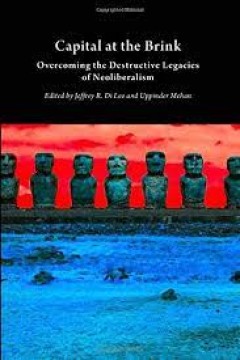
Capital at the brink : overcoming the destructive legacies of neoliberalism
Capital at the Brink reveals the pervasiveness, destructiveness, and dominance of neoliberalism within American society and culture. The contributors to this collection also offer points of resistance to an ideology wherein, to borrow Henry Giroux’s comment, “everything either is for sale or is plundered for profit.” The first step in fighting neoliberalism is to make it visible. By discu…
- Edition
- -
- ISBN/ISSN
- 9781607853060
- Collation
- 277p. ; ill.
- Series Title
- -
- Call Number
- 320.51 JEF c
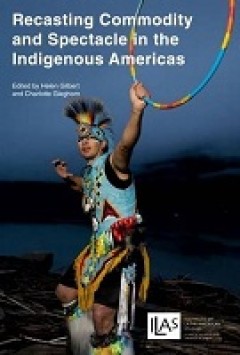
Recasting commodity and spectacle in the indigenous Americas
Indigenous artists frequently voice concerns over the commodification of their cultures, a process acutely felt by those living with the consequences of colonialism. This timely book, which features colour illustrations throughout, examines the ways in which contemporary indigenous peoples in different parts of the Americas have harnessed performance practices to resist imposed stereotypes and …
- Edition
- -
- ISBN/ISSN
- 9781908857088
- Collation
- ix, 273p.
- Series Title
- -
- Call Number
- 700.98 REC g
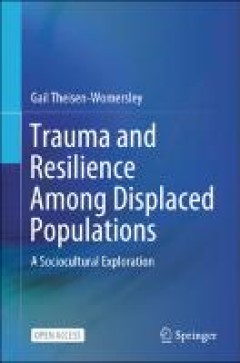
Trauma and resilience among displaced populations : a sociocultural exploration
This open access book provides an enriched understanding of historical, collective, cultural, and identity-related trauma, emphasising the social and political location of human subjects. It therefore presents a socio-ecological perspective on trauma, rather than viewing displaced individuals as traumatised “passive victims”. The vastness of the phenomenon of trauma among displaced populati…
- Edition
- -
- ISBN/ISSN
- 9783030677121
- Collation
- x, 305p.
- Series Title
- -
- Call Number
- 305.906914 TRA t
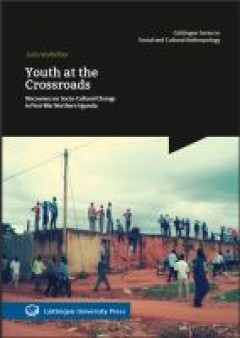
Youth at the crossroads : discourses on socio-cultural change in post-war Nor…
Based on eleven months of field work (2009-2011), this book analyzes the situation of youth in urban Gulu, Northern Uganda, in the aftermath of the war between the Lord’s Resistance Army and the Ugandan Government (1986-2006). Specifically, it focuses on the generation that was born and grew up during the 20-year war: How do members of this generation perceive and evaluate socio-cultural chan…
- Edition
- -
- ISBN/ISSN
- 9783863951696
- Collation
- 337p.
- Series Title
- -
- Call Number
- 305.235096761 YOU v
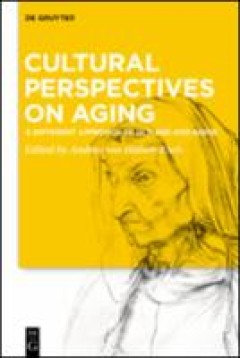
Cultural perspectives on aging : a different approach to old age and aging
The societal significance of old age and ageing are increasing due to demographic developments. Age(ing) is not only a biological and social fact, but also a cultural one. This book reveals the importance of cultural factors in order to build a framework for analyzing and understanding cultural constructions of ageing, bringing together scholarly discourses from the arts and humanities as well …
- Edition
- 3
- ISBN/ISSN
- 9783110683042
- Collation
- 172 p. : ill.
- Series Title
- -
- Call Number
- 900 HUL c
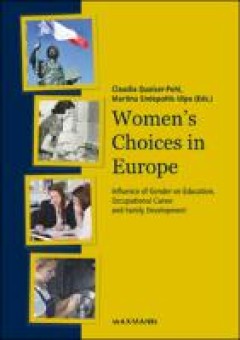
Women's choices in Europe : influence of gender on education, occupational ca…
The options women have to shape their lives have dramatically increased in the last decades, and this is true for all European countries. Changes in their societies with respect to women’s rights have been fundamental, amongst other things as a result of the women’s movement, which caused one of the greatest social revolutions of the 20th century. But considering the different starting poin…
- Edition
- -
- ISBN/ISSN
- 9783830977438
- Collation
- vi, 229 p. : ill
- Series Title
- -
- Call Number
- 305.4094 QUA w
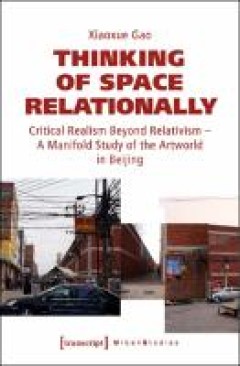
Thinking of Space Relationally : Critical Realism Beyond Relativism - A Manif…
Since the relational turn, scholars have combated methodological universalism, nationalism, and individualism in researching social-spatial transformations. Yet, when leaving the gaps between the traveling and local epistemic assumptions unattended, engaging relational spatial theories in empirical research may still reproduce established theoretical claims. Following the sociology of knowledge…
- Edition
- 8
- ISBN/ISSN
- 9783839455876
- Collation
- 282 p, ill.
- Series Title
- -
- Call Number
- 709.5115 GAO t
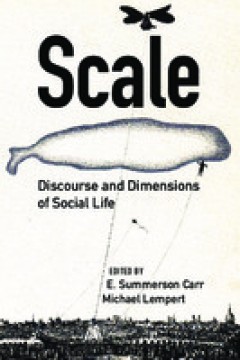
Scale : discourse and dimensions of social life
"Wherever we turn, we see diverse things scaled for us, from cities to economies, from history to love. We know scale by many names and through many familiar antinomies: local and global, micro and macro events. Even the most critical among us often proceed with our analysis as if such scales were the ready-made platforms of social life, rather than asking how, why, and to what effect are scala…
- Edition
- 15
- ISBN/ISSN
- 9780520965430
- Collation
- xi, 277 p. : ill.
- Series Title
- -
- Call Number
- 300.72 LEM s

Established and outsiders at the same time : self-images and we-images of Pal…
Palestinians frequently present a harmonizing and homogenizing we-image of their own national we-group, as a way of counteracting Israeli attempts to sow divisions among them, whether through Israeli politics or through the dominant public discourse in Israel. However, a closer look reveals the fragility of this homogenizing we-image which masks a variety of internal tensions and conflicts. By …
- Edition
- 11
- ISBN/ISSN
- 9783863952860
- Collation
- 232 p, ill.
- Series Title
- -
- Call Number
- 305.8927405694 ROS e
 Computer Science, Information & General Works
Computer Science, Information & General Works  Philosophy & Psychology
Philosophy & Psychology  Religion
Religion  Social Sciences
Social Sciences  Language
Language  Pure Science
Pure Science  Applied Sciences
Applied Sciences  Art & Recreation
Art & Recreation  Literature
Literature  History & Geography
History & Geography